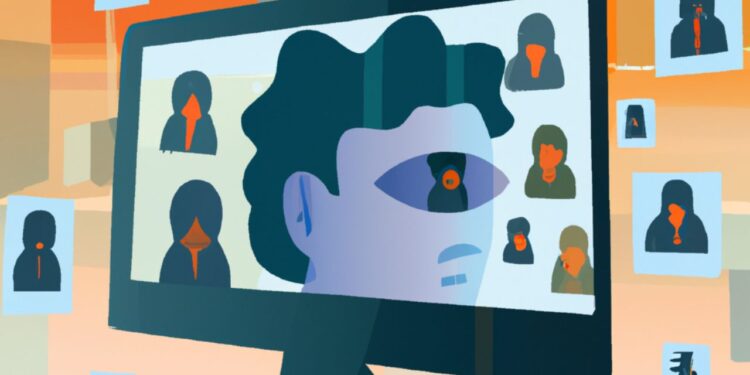- 60% of employers with remote employees are using work monitoring software of some type.
- The question is whether workers will just have to accept bossware on their work technology if they want to work remotely.
- In a Q&A with Allwork.Space, Breanne Murphy, Global Head of Partner Marketing at HiBob, said when workers are monitored in this way, it harms their sense of autonomy and creates stress.
As the future of work becomes even more tech-driven and tech-savvy, more companies are providing work laptops even for remote workers…but the majority of these laptops have some form of bossware installed on them. 60% of employers with remote employees are using work monitoring software of some type.
For those unfamiliar with the term, bossware is software that a company has installed on your work computer. This technology can track how much employees are working, which websites they visit, the location where they are working, and much, much more. Depending on the type of software, managers can become privy to communication between coworkers, login info, and other sensitive information.
The question is whether workers will just have to accept bossware on their work technology if they want to work remotely.
In a Q&A with Allwork.Space, Breanne Murphy, Global Head of Partner Marketing at HiBob, said that when workers are monitored in this way, it harms their sense of autonomy and creates stress.
Allwork.Space: Will workers just have to accept having bossware installed on their work tech if they want to work remotely?
Breanne Murphy: The short answer is yes, at least initially, because many companies are installing this type of software — which ranges from taking screenshots to tracking web browsing or app use, and even recording keystrokes — without alerting staff. It’s only after an issue arises where the program might suggest an employee is not being productive, and that employee is taken to task over it, that the practice comes to light. At which point employees are either furiously arguing their case or reportedly leaving in disgust.
Taken as a whole, once awareness is there, workers are not easily accepting this level of scrutiny without human oversight. The psychological toll alone dictates whether workers can just accept having bossware installed. Being monitored lowers your sense of perceived autonomy, which can increase stress and anxiety. Research on workers in the call center industry — which has been a pioneer of electronic monitoring — highlights the direct relationship between extensive monitoring and stress.
Allwork.Space: Before utilizing bossware, what should employers consider?
Breanne Murphy: Companies need to consider proportion, purpose and ethics — not to mention laws around privacy. They also need to weigh up whether they are prepared to lose staff to other companies that take a more empowering approach to supporting employee productivity.
Additionally, they need to be wary of AI models (often trained on databases of previous subjects’ behavior) which have proven inaccurate and baked in bias. Problems with gender and racial bias have been well documented in facial recognition technology for example. Then, there are the privacy issues.
Remote monitoring products that involve a webcam can be particularly problematic: there could be a clue a worker is pregnant, or disabled, perhaps even clues to sexual orientation — essentially giving employers a different level of information than they would otherwise have and certainly more than they need.
Allwork.Space: Does bossware help with employee productivity, or is it not worth it?
Breanne Murphy: It depends on which software is being used and why. Is the software there to prevent data leakage or protect a company’s intellectual property? Or is it invasive enough to destroy all trust between employee and employer?
Many companies in the U.S. and Europe, spurred on by the enormous shifts in working habits, are looking to automate the quantification of work — whether physical or digital — in the hope of driving efficiency. Joint research between HCM software provider HiBob and U.K. based professional body for HR and people development CIPD shows, conversely, that bosses are uncomfortable with collecting more information than is necessary for monitoring their people’s performance and wellbeing.
Other companies say it’s about protecting consumers and investors as well as employees from making accidental mistakes. However, many of these programs use activity as a proxy for productivity, but more emails or phone calls don’t necessarily translate to being more productive or performing better.
Moreover, systems that automatically classify a worker’s time into “idle” and “productive” are making value judgments about what is and isn’t productive. A worker who takes time to train or coach a colleague might be classified as unproductive because there is less traffic originating from their computer. Meanwhile programs recording data entry when your role doesn’t include this will give a completely inaccurate assessment.
Managers should reflect on their desire to monitor workers. Tracking may catch that one loafer out of 100, but remember that it came at the cost of 99 whose environment has been rendered completely unbearable and ultimately unsustainable.
















